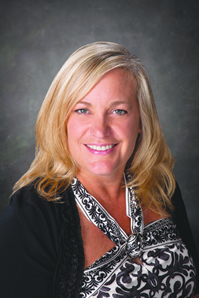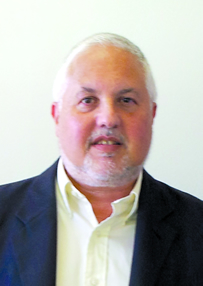Difficult conversations fill the practice of rheumatology: Conversations about treatments, conversations with staff about office conflicts, and conversations with patients and third-party payers about finances.

“These are issues that every clinician, nurse, physician’s assistant, trainee, and office manager face across the board,” said Robert Shmerling, MD, Clinical Chief of Rheumatology at Beth Israel Deaconess Medical Center, Boston. “Health care is a service industry, and we are the front line. There are difficult conversations to be had whether it’s something you would rather avoid or not.”
Dr. Shmerling will open an ARHP concurrent session on How to Manage Difficult Conversations in Your Practice from 2:30 – 4:00 pm Sunday. The session will explore strategies and tactics to manage those difficult conversations from three different perspectives.
“I’m going to be talking about my own greatest hits in terms of difficult encounters with patients,” he said. “One is the patient who is unhappy with the care they are getting and is thinking about changing doctors. Another is the patient who becomes an endless well of requests, asking for tests or referrals that you really can’t support. A third is the chronic pain patient who is escalating their requests for pain medication, a discussion that can become adversarial and confrontational very quickly. And there is the patient who likes you as a clinician, but has a different way of looking at the world, maybe a more aggressive approach than the conservative management that experience tells you is the way to go. Keeping these patients happy while, at the same time, keeping them safe and well cared-for can be challenging.”

Lisa Kastanek, RN, CCRC, Managing Partner at Physician Research Collaboration, LLC in Lincoln, Neb., will discuss ways to better manage difficult discussions between management and staff. Every rheumatology practice, regardless of size or setting, must deal with staff conflicts, personality conflicts, salary disputes, and behaviors that can be both disruptive and costly.
“As a practice manager, success lies in honest and fluid communication,” she said. “Managers can and must facilitate open, professional communications between staff in order to keep the practice team strong. As a manager, set clear expectations and goals, with the top priority being quality patient care and efficiency. I clearly and frequently communicate acceptable actions to support that priority.”
Problems encountered are not confrontations, but simply discussions to assure adherence to high standards, Kastanek said. There there are some very specific ways to approach that perspective of solving problems to support patient care.

Mark Post, BSCMB, Administrator of North Texas Joint Care in Dallas, will discuss some of the lessons he has learned in handling financial discussions with patients, families, and payers. In an ideal world, finances would not be a consideration in designing the optimal patient care plan. But in the real world, cost is a consideration with every patient.
“There can be an end to a service relationship, sometimes based on money, that shouldn’t happen,” he said. “But because it does happen, you absolutely have to have those conversations. As the business manager of the practice, either you drive the financial truck or it will run you over.”
The key business strategy is a set of strong office policy statements that are signed and dated and discussed with the patient and/or the caregiver, Post said. This affords the advantage of reminders, rather than new territory, of personal financial responsibility for treatment. Patients should know, in advance, the maximum cost. And they should have regularly updated cost estimates as treatment progresses and the expected costs change. If they can afford the copay, the conversation is closed and treatment can follow. If they can’t, the conversation gets more difficult and may entail change of therapy.
“These are all very practical issues that anyone who sees any number of patients will sooner or later encounter,” Dr. Shmerling said. “The information shared in the session will be highly practical and largely generalizable to any rheumatology practice. If you see patients, if anyone in your practice sees patients, you will have these difficult conversations.”
